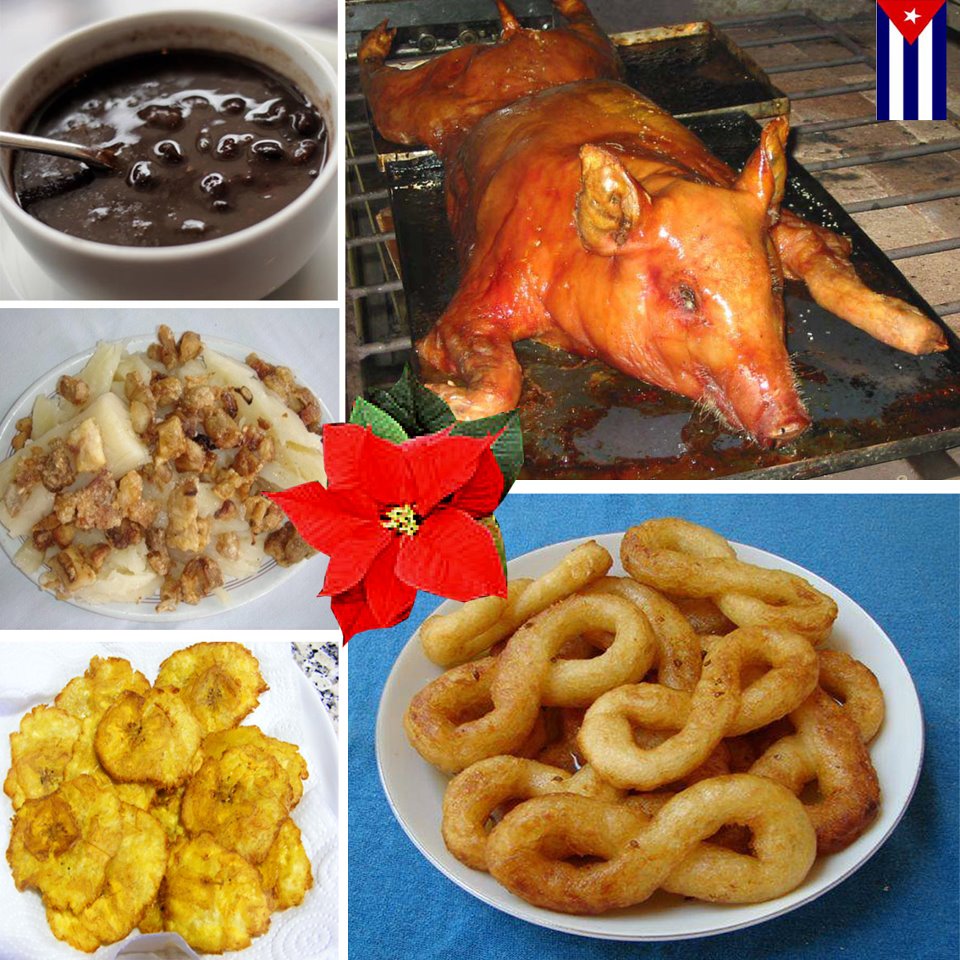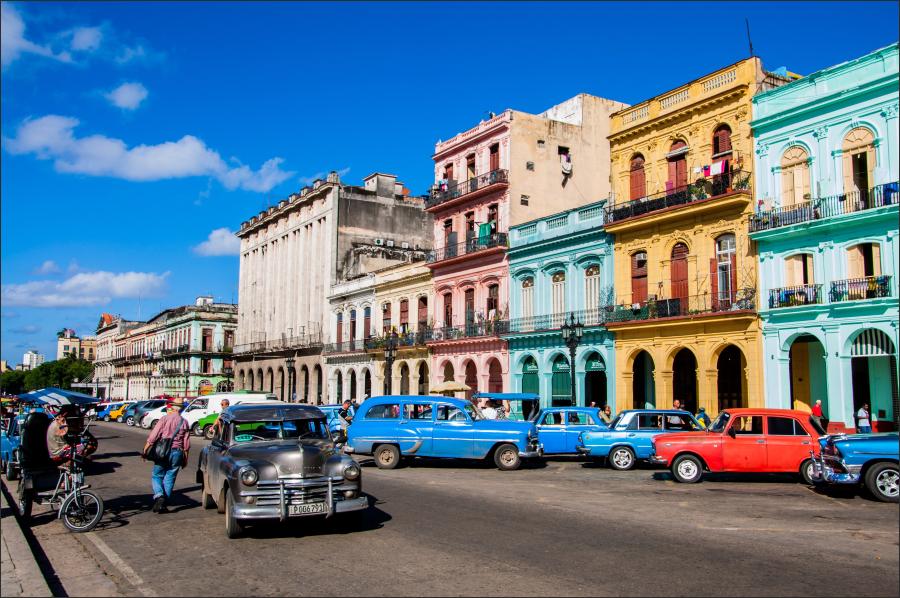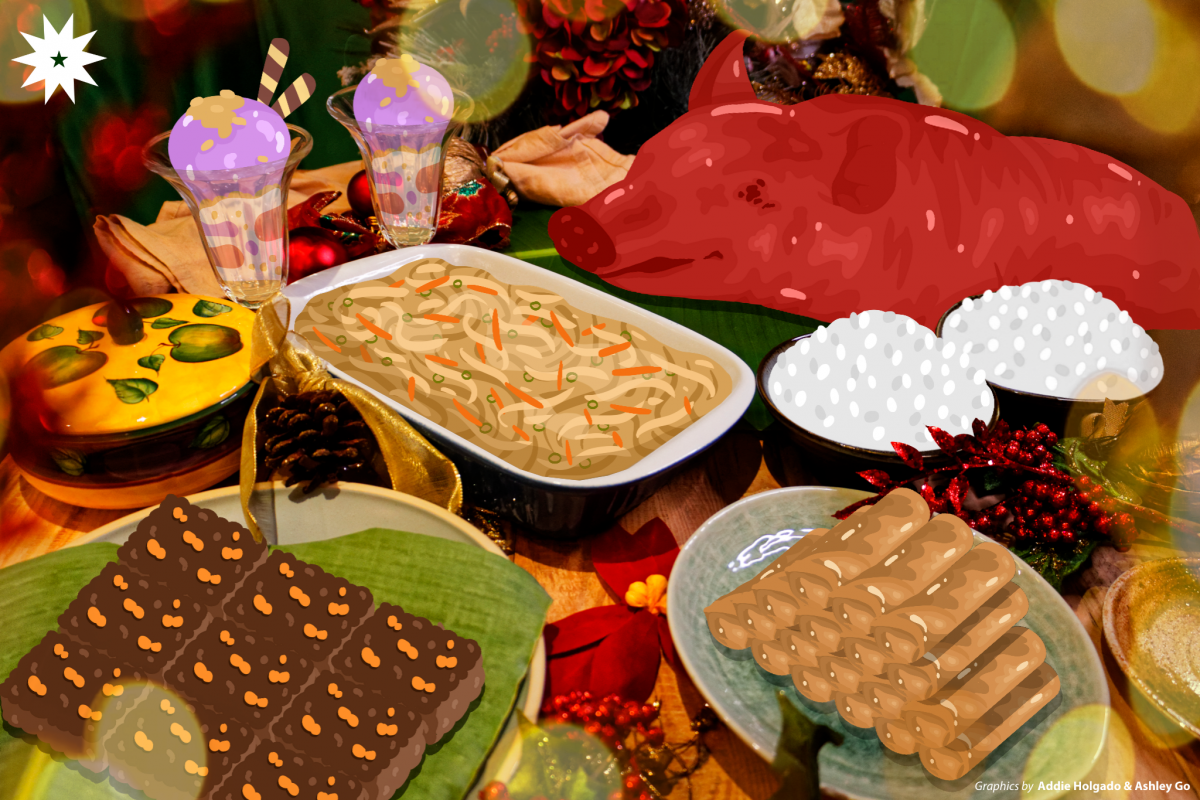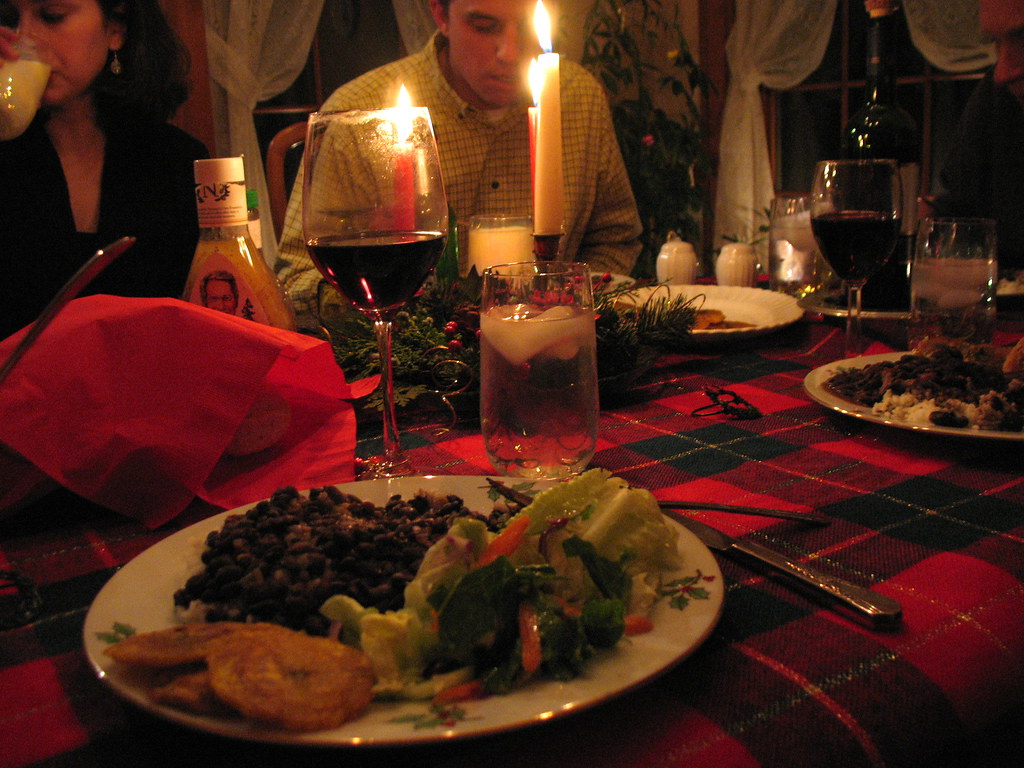
Nochebuena ¿cuál es el ORIGEN del nombre de esta celebración? La
In Cuba you will find lechón asado, or roasted pork. A traditional dessert is biscocho de crema, which are butter cookies stuffed with a mixture of dulce de leche and guava paste. Noche Buena Deserts. Many desserts are eaten for Noche Buena including tres leches cake, which is very popular in Mexico.

La Habana En La Noche, Cuba Foto de archivo Imagen de cubano
On Christmas Eve or Noche Buena as it is known in Cuba, the time when most Cuban festivities are practiced, a large meal or feast is held for the entire family, where pretty much every living member of the family tree is invited over for one hell of a party. And, most often, the main meat of choice for these gatherings is juicy and succulent.

Cuba YouTube
En Cuba, después de la cena, muchos concurrían a la "Misa de Gallo". Pero a partir de 1969 las fiestas fueron eliminadas oficialmente y no fue hasta la visita del Papa Juan Pablo II, que en diciembre de 1997 se volvió a declarar el 25 de diciembre como día feriado no laborable.

FileHabana Vieja de noche.jpg Wikimedia Commons
Y los cubanos con esfuerzo, esa noche ponían en su mesa todo lo mejor que podían conseguir, que para eso estaba el mercado negro… La comida tradicional de las mesas el 24 de diciembre era el lechón asado, arroz congrí o arroz y frijoles, viandas (yuca, malanga, boniato) con mojo criollo a base de naranja agria, grasa de puerco y mucho ajo.

Descubre el Origen y las Tradiciones de Nochebuena Dias festivos en
December 24, 2023 by Alberto de la Cruz. For Cubans, Nochebuena is a jubilant celebration filled with family, food, and intense joy. The cheerful tradition continued for Cubans in exile, but for those left behind on the island, Fidel Castro made sure to ruin it all. Roberto Alvarez Quiñones explains in Diario de Cuba (my translation):

[DEAUVILLE] "Una Noche", Cuba si, Cuba no
memorias cubanas: la celebraciÓn de la "nochebuena" en cuba. En Cuba, se celebraba la Nochebuena y después se concurría a la Misa de Gallo. Pero a partir de 1969 las fiestas fueron eliminadas oficialmente y no fue hasta la visita del Papa Juan Pablo II y hasta diciembre de 1997, que se volvió a declarar el 25 de diciembre como día.

Nochebuena Cómo preparar la cena perfecta para tu familia
Noche Buena, which translates to "Beautiful Night" in English, is celebrated on December 24th, and is a time for families to come together and celebrate the holiday season across many Hispanic cultures. History of Cuba's Noche Buena After the colonization of Cuba by the Spanish, Christmas was observed and celebrated across the island. The tradition of attending mass on December 25th.

Hojas de prensa para la historia de Cuba. La Nochebuena cubana.
La tradición de comer en familia la noche del 24 de diciembre está presente en Cuba como en muchos países donde el cristianismo forma parte de la base cultural. Nochebuena no es más que una víspera del día de Navidad que se festeja el 25 de diciembre, una conmemoración del nacimiento de Jesús en Belén, el Mesías de la religión católica.

FIESTA CUBANA MEMORIAS DE UN CUBANO
Cuba has its own unique celebration, but some of the traditions are similar to other Hispanic countries and some places in America. Christmas Eve is called "Nochebuena," which means the good night. It is a time when families get together and recognize the night Joseph was searching for a place to stay. It is a fun night for all involved.

10 Cuba and Havana travel tips from experts Caribbean Travel Guide
Noche Buena is focused on the family, and the happiness of togetherness. It doesn't focus on the young kids, or what they necessarily think or their bedtimes or behavior for the preceding month to earn presents. Kids had to stay up, or at least be awake, at midnight if they wanted to open presents.

Eat, drink, and be merry Deconstructing the Noche Buena The LaSallian
Preheat oven to 425 degrees. Cook for 20-30 minutes. Reduce heat to 350 degrees and cook for up to an hour longer, basting with pork juices occasionally. Remove when the pork is at least 150 degrees. Let cool slightly. Cut into slices before serving with rice, black beans and all the other Noche Buena goodies.

FileSandals Cuba Pool.jpg Wikimedia Commons
Published December 20, 2012 at 12:00 PM PST. Christmas Eve is celebrated in Cuba, not Christmas Day. It's called Noche Buena, and it includes food, music, dancing and gatherings. A traditional Cuban Noche Buena feast consists of plenty of roast pig (yes, a whole one), black beans and rice, fried plantains and yucca with garlic.

Tradiciones De Navidad En Espana
Noche Buena is a holiday celebration for Christian Latinx people around the world. In the simplest terms, Noche Buena is a Christmas Eve celebration for Christian Latinx populations. (It's not to be confused with Media Noche, which refers to a lavish midnight feast that takes place on New Year's Eve.) Noche Buena is a time for family and.

Noche Buena The traditional Cuban Christmas Eve meal of bl… Flickr
Nochebuena, which translates to "good night" in Spanish, refers to the traditional Christmas Eve celebration observed by Latinx, Spanish, and Filipinx people around the world. It is arguably one of the most important cultural festivities of the year. While many people and countries have different traditions, Nochebuena is most commonly.

Buenas noches desde Cuba. La Habana de noche. Una foto tomada por
Christmas in Cuba is celebrated on Noche Buena, or Christmas Eve. The traditional meal is a whole suckling pig prepared in a backyard oven, and the party is huge. Families get together, friends pop over, and even neighbors and co-workers are invited. As a result, Christmas Day is more about recovery than festivities.

Cuba 2017
Informant: "The Christmas tradition… uh La Noche Buena (The Good Night) took place on the 24th in Cuba, the day before American Christmas. What happens is um ah its a family event where everyone is involved in the process of preparing a whole pig to eat. First the men in the family traditionally kill and clean the pig, and all family.